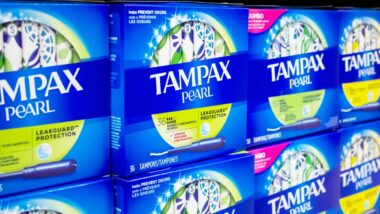Top Class Actions’s website and social media posts use affiliate links. If you make a purchase using such links, we may receive a commission, but it will not result in any additional charges to you. Please review our Affiliate Link Disclosure for more information.
Florida Deceptive and Unfair Trade Practices Act Overview
The Florida Deceptive and Unfair Trade Practices Act (FDUPTA) is a law that prohibits companies and organizations from making false promises or giving misleading information to consumers, in addition to prohibiting deceptive acts or unfair conduct that may harm consumers. The law is very broad, which allows it to cover a variety of activities and actions. In addition to prohibiting companies from making false claims about products and deceiving or misleading consumers about purchase agreements, the act also governs spam emails.
What Are the Regulations on Spam Emails?
According to the Florida Deceptive and Unfair Trade Practices Act, companies may not send advertising or spam emails to consumers unless they comply with strict regulations. The requirements for compliance prohibit companies from sending emails for commercial or business purposes to consumers who are not in a prior relationship with the business, or who have not given their consent to be contacted. Additionally, these emails are not allowed to contain false or deceptive information.
False or deceptive information in a spam email may include misleading information in the subject line, a false header that obscures the email of the party who sent the message, and deceptive or false information in the body of the email that may cause harm to consumers. Misleading information in the header may include claims that are untrue, such as an email that claims to offer free services that actually include hidden fees or a fake sale. Obscuring the identity of the person or company who sent the email is also deceptive. In these cases, the scammer may be able to make it look as though the email is coming from an actual person, or even a person that you know. Lastly, deceptive information in the body of the email often takes the form of hidden viruses, designed to attack the consumer’s computer.
Is There a Statute of Limitations?
Consumers who believe they have a case under the Deceptive and Unfair Trade Practices Act are required to act in a timely fashion. According to the law, victims who intend to file lawsuits regarding email violations of the act must do so within four years of the date of the email. If there were any payments associated with the email believed to be in violation of the act, victims have within two years from the date of the last payment, or four years of the email, depending on which is later.
How Does the Florida Deceptive and Unfair Trade Practices Act Protect You From Spam Email?
Under FDUPTA and the Florida Electronic Mail Communications Act, consumers who are harmed by spam email or other violations of FDUPTA may be able to sue for up to $500 per email received. Additionally, the Florida Department of Legal Affairs may also decide to sue the offending company for these violations. In some cases, the email violations may rise to the level of criminal conduct.
Unfortunately, consumers who have been harmed by deceptive or unfair practices are only able to pursue compensation for any actual monetary damages they suffered.
What Do You Need to File a Complaint?
In order to file a complaint under the Florida Deceptive and Unfair Trade Practices Act, you will need a record of the emails you have received. It is important to save any communications that you believe violate the regulations of FDUPTA. Additionally, you may also want to have a record of any costs or payments that were made in relation to deceptive acts or false claims.
What Lawsuits Have Been Filed?
Many lawsuits regarding different deceptive acts and false claims have been filed under the Florida Deceptive and Unfair Trade Practices Act, as well as similar laws in other states. Several people have filed lawsuits against cruise companies, including Caribbean Cruise Line, for allegedly sending emails telling consumers they had won a free cruise. However, upon closer inspection, these free cruise offers contained fine print regarding daily fuel supplement fees, port fees, government taxes, and other costs.
Other victims have filed lawsuits under the act regarding medical device implants, including breast implants made by Allergan, which have been linked to an increased risk of developing a type of implant-associated cancer.
And a lawsuit filed in late 2019 against Burger King claims that the company violated deceptive and unfair trade laws by cooking vegan Impossible Burgers on the same grills that were used to cook beef burgers, resulting in the contamination of the food.















